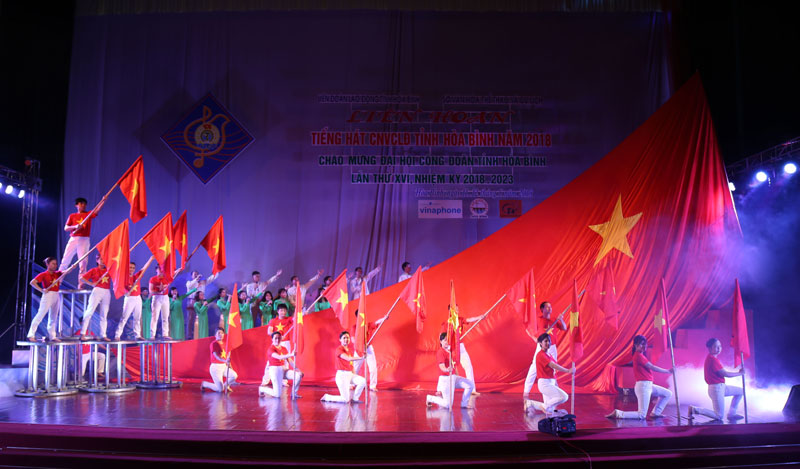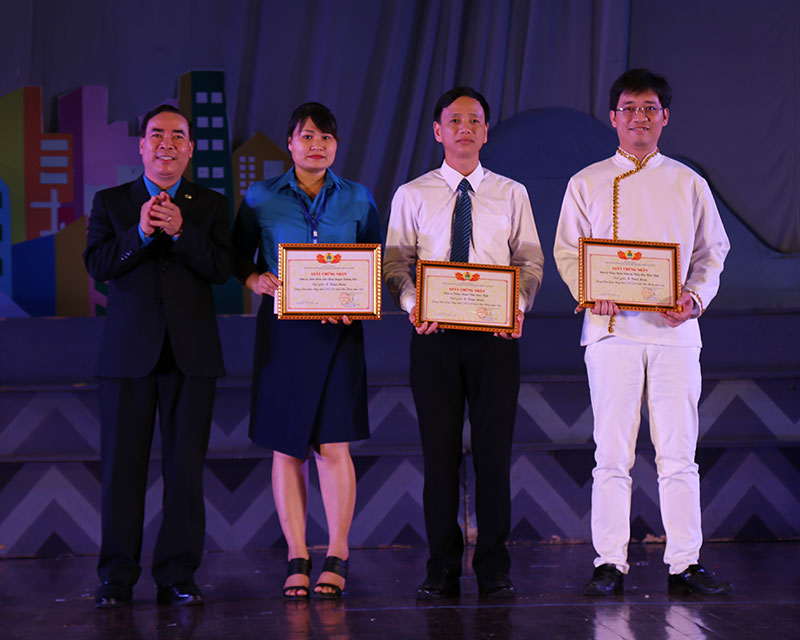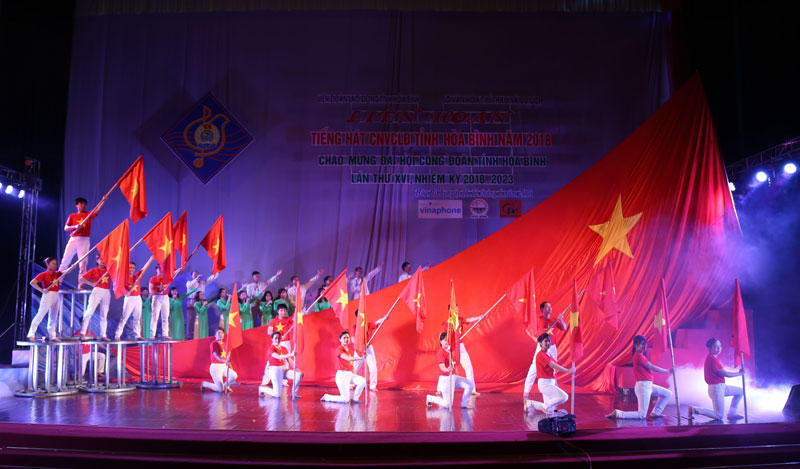
(HBO) – The Federation of Labour, in collaboration with the provincial Department of Culture, Sports and Tourism of Hoa Binh province, organised a singing festival for local civil servant and labourers at the province’s Culture Palace.
Photo:
A performance show staged by workers of the Hoa Binh Hydropower Plant.
The
singing festival is a practical activity to celebrate the 128thbirthday of President Ho Chi Minh (May 19), and the 16th Congress of
the provincial trade union for the 2018-2023 tenure.
The event created a healthy playground for civil servants and local
workers to enhance exchanges and bolster solidarity.
More than 300 amateur artists, directors and musicians from 19 trade unions of
districts, Hoa Binh city and sectors participated in the singing festival. They
delivered 80 performances which extoled the Party, President Ho Chi Minh and
patriotism as well as praise labour force.
After two days of competition, the organising board chose 12 most excellent
performances to be staged at the awarding ceremony held on May 12. A total of 9
A awards, 16 B awards, 25 C awards and 25 encouragement awards were presented
to the most outstanding performances.
Three team’s first prizes belonged to trade unions of Hoa Binh Hydropower Plant,
Luong Son district and provincial Federation of Labour.

Photo: Bui Tien Luc, Chairman of the
provincial Federation of Labour presents the first prizes to Hoa Binh
Hydropower plant, Luong Son district and provincial Federation of Labour.
With an increasingly vibrant and widespread emulation movement aimed at building cultured residential areas and cultured families, Yen Thuy District has been making steady progress toward improving both the material and spiritual well-being of its people, while fostering a civilized, prosperous, beautiful, and progressive community.
Once lacking recreational spaces and community facilities, Residential Group 2 in Quynh Lam Ward (Hoa Binh City) has recently received attention for the construction of a new, spacious, and fully equipped cultural house. The project followed the model of state support combined with public contributions in both labor and funding.
The "All people unite to build cultural life" movement, which has been effectively integrated with Kim Boi district’s socio-economic development goals, is fostering a lively spirit of emulation across local residential areas, hamlets, villages, public agencies, and enterprises. In addition, through the initiative, traditional cultural values are being preserved and promoted, while community solidarity and mutual support in poverty reduction and economic development are being strengthened.
A working delegation of the Hoa Binh provincial People’s Committee led by its Permanent Vice Chairman Nguyen Van Toan on June 11 inspected the progress of a project to build the Mo Muong Cultural Heritage Conservation Space linked to tourism services in Hop Phong commune, Cao Phong district.
Born and growing in the heroic land of Muong Dong, Dinh Thi Kieu Dung, a resident in Bo town of Kim Boi district, in her childhood was nurtured by the sweet lullabies of her grandmother and mother. These melodies deeply imprinted on her soul, becoming an inseparable part of her love for her ethnic group's culture. For over 20 years, this love for her hometown has driven Dung to research, collect, and pass down the cultural values of the Muong people to future generations.
In the final days of May, the Ethnic Art Troupe of Hoa Binh Province organized performances to serve the people in remote, mountainous, and particularly disadvantaged areas within the province. These were not just ordinary artistic shows, but they were the meaningful journeys aimed at spreading cultural values, enhancing the spiritual life of the people and contributing to the preservation of ethnic minority cultural identities.




